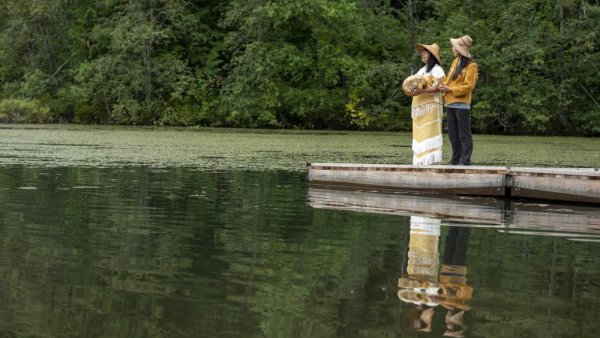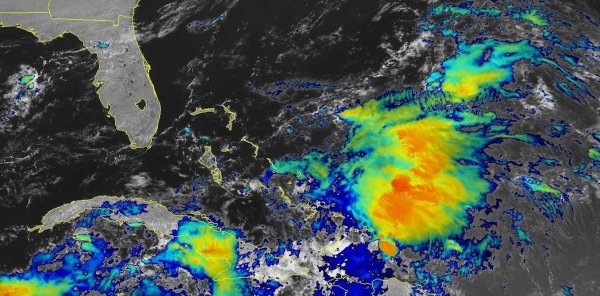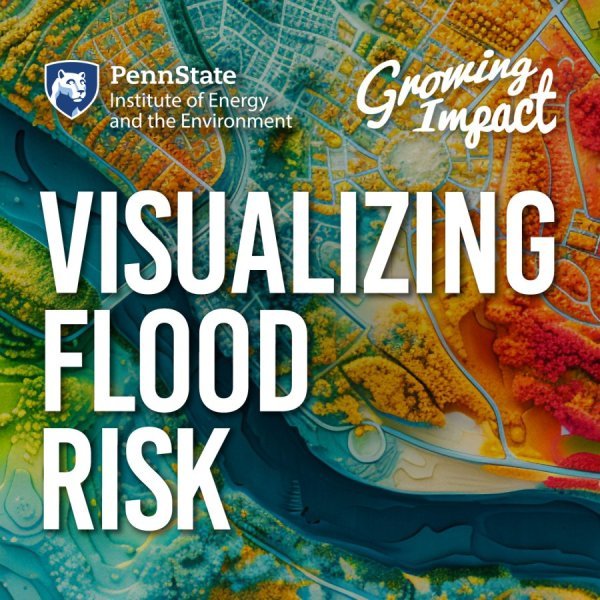Researchers earn NSF grant to measure local innovation activity
| psu.edu
A team of researchers, including two Penn State agricultural economists and an Oak Ridge Institute for Science and Education fellow, received funding from U.S. National Science Foundation to develop a new method for accurately measuring innovation activity in small geographic regions.
NCEMS aims to ‘build a nationwide community' and address research barriers
| psu.edu
The U.S. National Science Foundation (NSF) National Synthesis Center for Emergence in the Molecular and Cellular Sciences (NCEMS) at Penn State, supported by a $20 million grant from the NSF, will “bring scientists together from different disciplines to integrate diverse data sets to answer transformative scientific questions,” according to Justin Petucci, associate director of NCEMS and artificial intelligence and machine learning team lead for Research Innovations with Scientists and Engineers.
Australia offers lessons for increasing American life expectancy
| psu.edu
Australia offers a model for increasing the American lifespan, according to a new study led by researchers at Penn State.
US population has lowest life expectancy among peers: 'Alarming'
| newsweek.com
The United States has the lowest life expectancy of all the English-speaking nations, a new study has found. This article quotes Jessica Ho, associate professor of sociology and demography.
Re-engineering medical simulation training for the next generation of physicians
| psu.edu
Placing a central line in a patient’s vein to receive fluids or medicine is one of the most common medical procedures, with more than 5 million performed each year in the United States. Researchers in Penn State’s Colleges of Engineering and of Medicine aim to reduce error rates in central-line placement by designing and implementing a novel robotic training program that uses life-like manikins and real-time feedback to simulate patient scenarios.
University Libraries Open Publishing launches open-access journal ‘Geomorphica’
| psu.edu
Penn State University Libraries Open Publishing has launched Geomorphica, a Diamond Open Access journal that promotes discourse and disseminates research in geomorphology.
Researchers use CT scanning to study spotted lanternfly anatomy
| psu.edu
Because basic knowledge about the spotted lanternfly's biology remains limited, a team of Penn State researchers is collaborating with the Center for Quantitative Imaging to detail the spotted lanternfly's anatomy and physiology.
$5M grant to engage Indigenous communities in climate change research
| psu.edu
Indigenous communities around the globe face profound threats from climate change, biodiversity loss and land degradation. Now, an international team that includes researchers from Penn State have been awarded $5 million by the U.S. National Science Foundation, along with funding from Canada, the United Kingdom and Germany, to investigate how to mitigate these threats.
Pregnant women may not be drinking enough water, researchers report
| psu.edu
Many pregnant women are not aware of — or meeting — hydration guidelines, but they would be open to using technology to address the problem, according to a new study led by researchers in the Penn State Department of Kinesiology.
Penn State, Shell announce collaboration focused on energy and sustainability
| psu.edu
Citing a shared commitment to a sustainable future, Penn State and Shell USA Inc. have announced the launch of a collaboration that will support efforts across the University’s mission of research, education and community impact.
Birth of a hurricane: What meteorologists look for as they hunt for early signs of a tropical cyclone forming
| theconversation.com
When tropical meteorologists peer at satellite images, they often catch sight of subtle cloud formations hinting at something more ominous brewing. New techniques are helping forecasters spot potentially dangerous storms earlier than ever. This article was written by Xingchao Chen, assistant professor of meteorology and atmospheric science.
Nine wells in Franklin County found with high PFAS levels
| stateimpact.npr.org
Letterkenny Army Depot continues to test for the chemicals, which are linked to health problems like cancer, reproductive issues and developmental delays in children. This article quotes Faith Kibuye, Penn State water resources associate.













